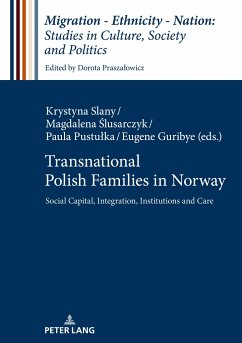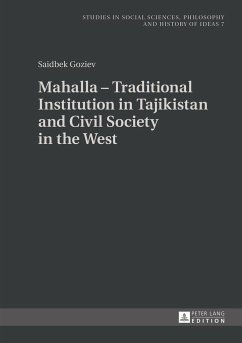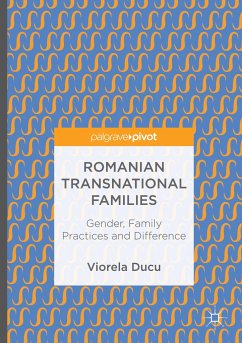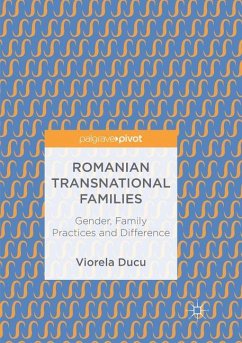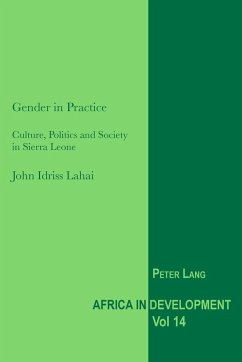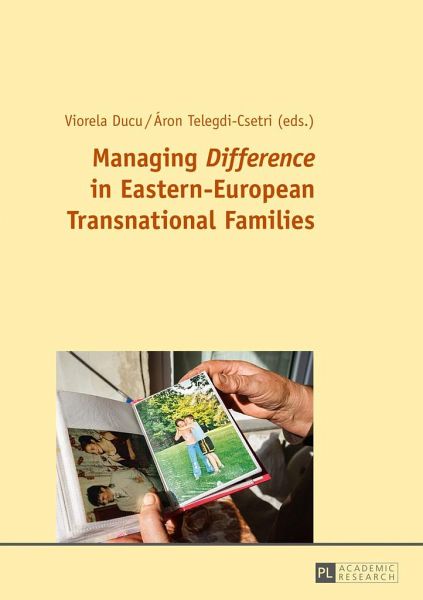
Managing 'Difference' in Eastern-European Transnational Families
Versandkostenfrei!
Versandfertig in 6-10 Tagen
40,05 €
inkl. MwSt.

PAYBACK Punkte
0 °P sammeln!
Studies in this book have been gathered on the occasion of two academic events in the field of Transnational Families, focusing on the Eastern-European space, from a - diversified - qualitative social research perspective. The volume places a special emphasis on a gendered and practice-oriented approach, exploring territories of domination and empowerment that inform the negotiation of difference. Studies follow processes of emancipation, family practices, redistribution of gendered roles, forms of abuse, social remittance, confrontation between rights and cultures, forming joint action strate...
Studies in this book have been gathered on the occasion of two academic events in the field of Transnational Families, focusing on the Eastern-European space, from a - diversified - qualitative social research perspective. The volume places a special emphasis on a gendered and practice-oriented approach, exploring territories of domination and empowerment that inform the negotiation of difference. Studies follow processes of emancipation, family practices, redistribution of gendered roles, forms of abuse, social remittance, confrontation between rights and cultures, forming joint action strategies and egalitarian capital, in a process of emergence of new social actors. Studies reflect back upon the ambiguity of conceptual frameworks to be put to use while approaching this yet unexplored area.





